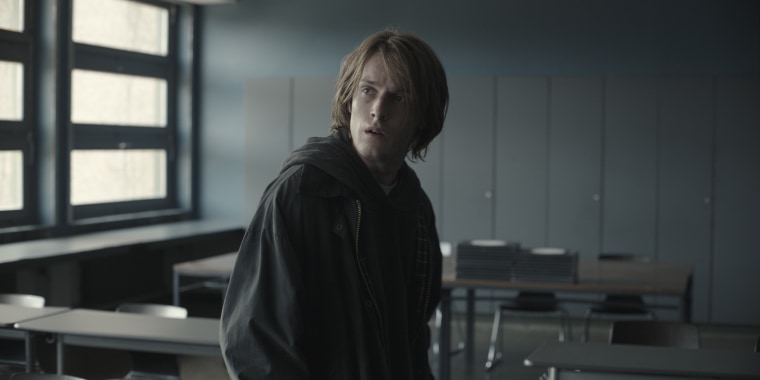As the coronavirus pandemic stretches on and movie theaters keep inching back released dates, Netflix continues to thrive. One reason is the constant influx of European shows, billed in the U.S. as “Netflix Originals,” which has helped the streamer release up to a dozen titles a week of (mostly) quality series, even as filming is halted around the world.
The streamer’s foreign-language series are also flourishing as viewers sit home endlessly binge-watching.
When most people think of European series on Netflix, “The Great British Baking Show” immediately comes to mind, or perhaps the startlingly right-wing leaning “Bodyguard.” But the streamer’s foreign-language series are also flourishing as viewers sit home endlessly binge-watching.
The two shows that have made arguably the biggest splash with American audiences are a pair of German series: “Babylon Berlin” and “Dark,” the latter of which releases its third and final season this weekend. The secret behind both series’ popularity is a preternatural ability to tap into the current U.S. zeitgeist, even though both began streaming three years ago.
When it first premiered in 2017, “Dark” was originally billed as a sort of German version of “Stranger Things,” with a local boy named Erik who disappears under mysterious circumstances. But this undersells the series by several orders of magnitude. The plot of “Stranger Things” is child’s play in comparison. “Dark” opens with a wall of photos interconnected by string. It’s a warning and a promise — this rabbit hole goes deep. But unlike other puzzle-box series, like “Westworld,” “Dark” is not sewing conspiracy-minded behavior in fans to hide a monster at the end of the book. It wants you to figure the mystery out, with gratifying reveals that feel worth the investment.
Since “Dark” is a show that demands careful viewing, jumping in at the top of the third season is highly ill-advised. The first episode of season three is actually the mirror image of the first episode of season one. Doubtless, fans of the series are on Reddit this minute, cataloging every detail.
But what makes the series effective is not its complexity. Rather, it recognizes our need for patterns and making sense of things despite the overwhelming flow of information. It showed us how to unravel QAnon, before QAnon was even a thing. It is a show built to thrive in the era of the red-yarn-filled cork board, ready to see your questions about Russian trolls and 5G mind control and raise them an apocalypse that takes place across three different time periods and at least two multiverses.
While “Dark” may have snagged American fans first, “Babylon Berlin” is building a cult audience due to its uncanny topicality. Set in the spring of 1929, in the waning days of the Weimar Republic, the series is technically shaped to look like your stereotypical film-noir police procedural. But the real story is the rise of German nationalism in a sleeping democracy. Although it stared production in 2016, there has never been a better moment for a series that highlights the way fascism builds momentum. Also, did I mention the musical numbers are gold?
Moreover, unlike America’s endless crime dramas, “Babylon Berlin” doesn't glorify law enforcement, instead honing in on a story about the wanton police brutality deployed by a government attempting to ignore systemic inequality. Using the historical Workers Day Riots, the show re-creates the true-to-life left-wing protest marches that occurred in Berlin after police murdered several victims during what had been a peaceful May 1 demonstration. The scenes echo America’s own police brutality protests so strongly, and the government’s response so eerily, it will give you chills. Knowing what’s going to happen to the German people in four years might send you off into a completely different kind of conspiracy rabbit hole.
“Babylon Berlin” released its third season in January, but the series didn’t take off until the beginning of the shutdown. Since then, more than a few entertainment sites and large publications have covered it, all but begging viewers to get themselves past the “one-inch-tall barrier of subtitles.” For those realizing the time for huddling at home is nowhere near over and that promised films, from “Tenet” to “Mulan,” are probably not arriving in theaters anytime soon, both series are ideal distractions. Between “Babylon Berlin” and “Dark,” it seems Netflix’s European offerings understand us better than we do ourselves.

